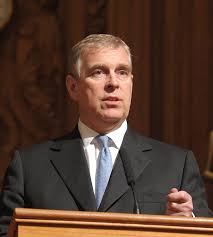Recent Developments Surrounding Tom Hayes

Introduction
Tom Hayes, a former trader whose conviction for conspiracy to defraud over the LIBOR scandal gained headlines, remains a crucial figure in discussions surrounding financial ethics and regulatory changes in the banking sector. His case exemplifies the complexities of financial trading practices and the repercussions of market manipulation, making it increasingly relevant as media and regulatory bodies continue to evaluate the integrity of financial markets worldwide.
Background of the LIBOR Scandal
Hayes was accused of conspiring to manipulate the London Interbank Offered Rate (LIBOR), a pivotal interest rate used in global finance that impacts loans and mortgages. In 2015, he was sentenced to 14 years in prison, although his sentence was later reduced on appeal, sparking debates about the effectiveness of punishments related to white-collar crime. This scandal led to a series of reforms aimed at increasing transparency and accountability in banking practices.
Recent Developments
Recently, Tom Hayes has been in the news again as he bids for a potential parole release. Having served part of his sentence, Hayes is working towards demonstrating his rehabilitation and commitment to educating others on the dangers of unethical trading practices. Additionally, he has been engaging in discussions about financial ethics, aiming to use his experiences as a cautionary tale for budding financial professionals and institutions alike.
Despite the controversy surrounding his past actions, there are varied public opinions on Hayes. Some view him as a scapegoat for a system that permitted such behaviours, while others hold him accountable for his deliberate wrongdoing. This divergence of opinion underlines the complexities involved in white-collar crime and the necessity for comprehensive reforms in financial regulations.
Implications for the Financial Sector
The ongoing conversations about Tom Hayes continue to bring light to the broader implications of financial misconduct. Regulatory bodies are still grappling with creating stringent guidelines that prevent such actions in the future and ensure that ethical standards are being met across the industry. Following the LIBOR scandal, numerous countries have implemented changes aiming to make trading practices more transparent and accountable, but critics argue that more needs to be done.
Conclusion
Tom Hayes has become a symbol of the challenges facing ethical standards within the financial sector. His case illustrates the need for continued vigilance and reform in financial regulations to safeguard against future misconduct. As he continues to work towards his release and engage in dialogues about the importance of ethics in finance, his story remains significant in guiding current and future generations of traders and regulators alike. The debate over his legacy serves as a reminder of the ongoing quest for integrity in financial markets.









